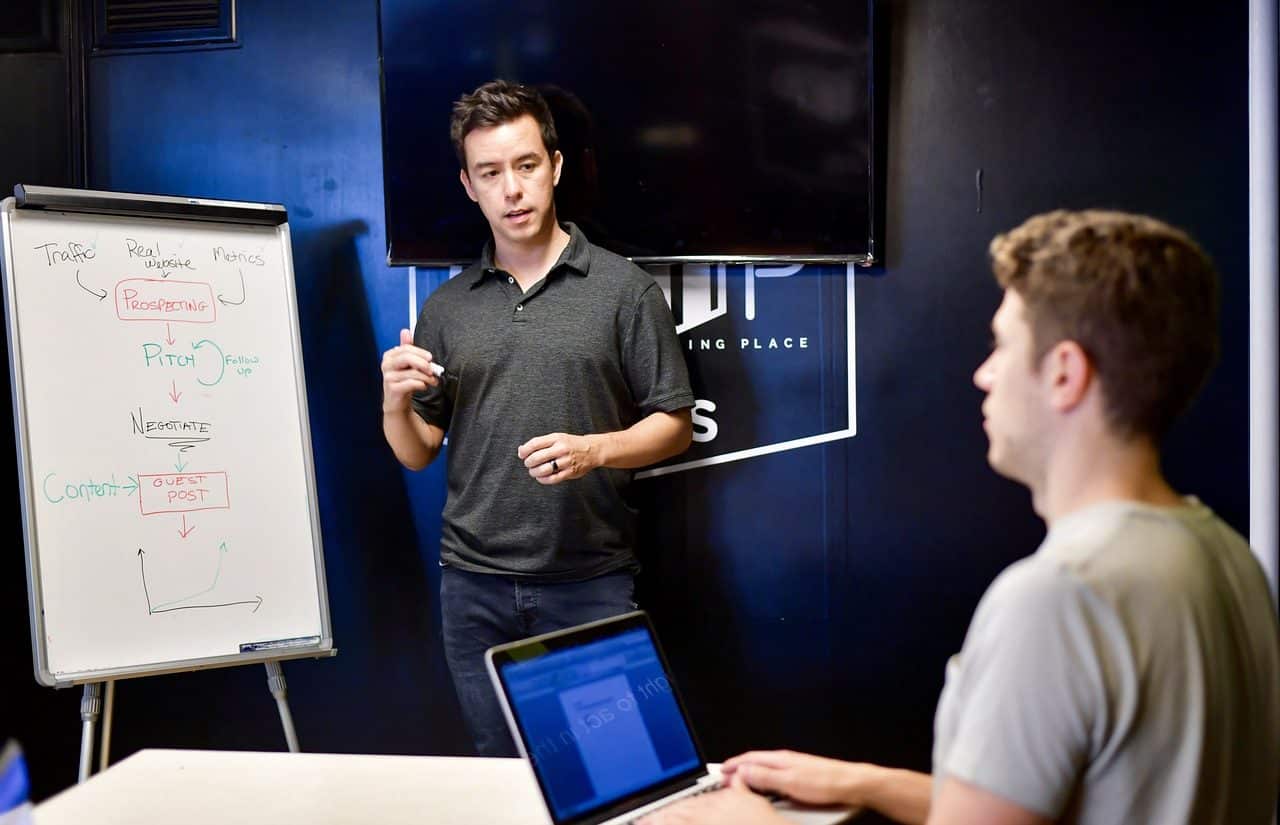
Mentoring helps strengthen the mentee's self-esteem.
Mentoring is a teaching and learning link established between an individual who has a lot of experience and another person who aspires to develop. In this way, the mentor helps the disciple to exploit his or her abilities.
It should be noted that the term mentoring is not part of the dictionary of the Royal Spanish Academy ( RAE ). However, FundéuRAE clarifies that the use of the word is correct as it is an appropriate derivation of mentor : a guide or teacher.
The notion of mentoring can even be used to refer to the relationship between the counselor and the mentee. On the other hand, FundéuRAE recommends avoiding the English word mentoring because, as we have seen, it can be replaced by expressions from our language.
What is mentoring
Mentoring is a process through which the mentor transmits knowledge, encourages and guides the mentee (also known as mentee or mentoring ). Although it is presented as an asymmetrical link, with the passage of time the distance between the most experienced and the apprentice tends to disappear and it is possible that both end up becoming collaborators or peers.
Likewise, it must be considered that feedback is generated between the two participants, with which the mentor also acquires new knowledge and benefits from the established bond.
Mentoring can occur in multiple areas. In a general sense, it can be stated that it is based on the establishment of a relationship for the transmission of knowledge and skills through communication and support.

In a mentoring relationship, the mentor must transmit his passion and enthusiasm to the disciple.
Your story
The history of mentoring is very old. The idea comes from a character who appears in Homer 's Odyssey : Mentor , a friend of Odysseus (also called Odysseus ). According to mythology, Ulysses asked Mentor to take charge of the training of his son Telemachus . In turn, the goddess Athena chose to adopt the appearance of Mentor to escort Telemachus when he went in search of his father.
Mentoring processes can be found between the elders and youth of Aboriginal tribes, in the work carried out by Hindu gurus and in the teaching given in the guilds of the Middle Ages . It is even possible to consider that Jesus Christ and his disciples were linked in this way.
In any case, the concept acquired renewed strength in the 21st century , especially in the corporate sphere. Given the constant changes and immediacy of today's world, this teaching model appears as a valid and useful alternative that goes beyond the accumulation of knowledge.
In this sense, mentoring is associated with coaching . In this scheme, the coach is someone who has more expertise than the coachee , which allows him or her to guide him or her and provide advice. However, unlike mentoring, coaching aims at specific objectives or specific activities and is not aimed at comprehensive progress.

A mentoring program includes guidelines and rules for developing the relationship.
Characteristics of mentoring
Mentoring requires trust to be carried out. The apprentice has to trust in the collaboration provided by the mentor, who for his part must be convinced of his student's commitment.
The purpose is for those who learn to gain autonomy and achieve progressive progress or growth in their personal development. In this evolution , little by little, he is achieving his empowerment .
Mentoring can be understood as a form of education . There is usually no evaluation of instruction or performance, however. The supervision of the fulfillment of the objectives is rather informal: the result is reflected in the eventual transformation of the apprentice and his continuous improvement.
Classification according to type
Mentoring can be classified in different ways. We speak of informal mentoring when the link is forged according to the criteria of the mentor and the mentee, who establish the deadlines and characteristics of the process.
Formal mentoring , on the other hand, is part of some type of program or scheme. In these cases there is a structure that defines the rules and sets the objectives.
Group mentoring , as its name indicates, occurs when a mentor provides advice and support to several people simultaneously. The orientation of this procedure, which is usually facilitated through the use of technological resources (such as social networks or wiki sites), is towards the growth of the whole.
Although this type of link always involves feedback, reverse mentoring is referred to when the mentor learns from the characteristics of the mentee. Another possibility is that so-called peer mentoring is developed, which is nourished by the exchange of experiences .
Express mentoring (through isolated meetings and without follow-up) and cross mentoring (with exchanges between guides and apprentices from different companies) are other types of mentoring. Interaction, in any form, is always expected to aid self-realization, foster creativity, provide inspiration, and contribute to success and professional development.
